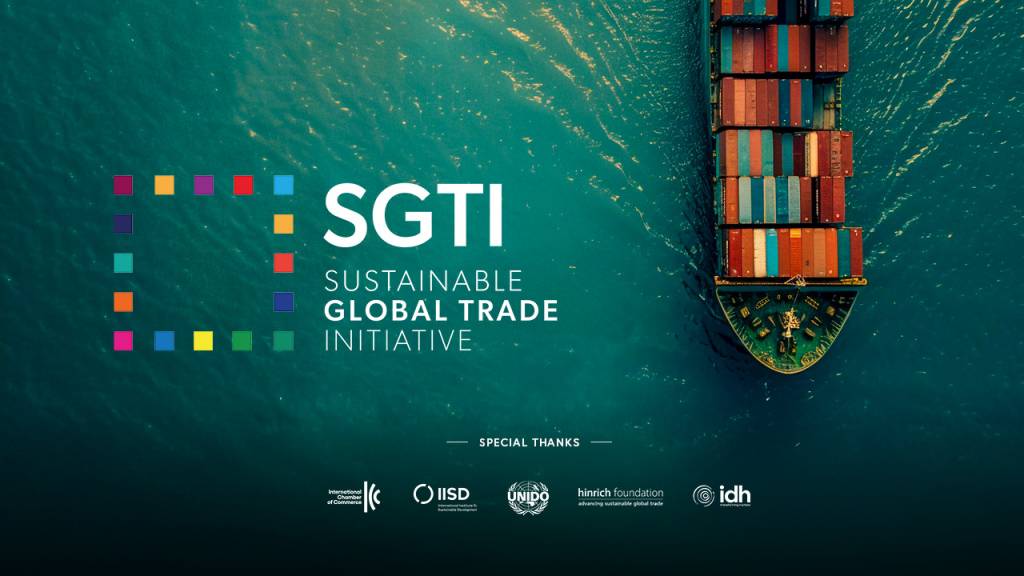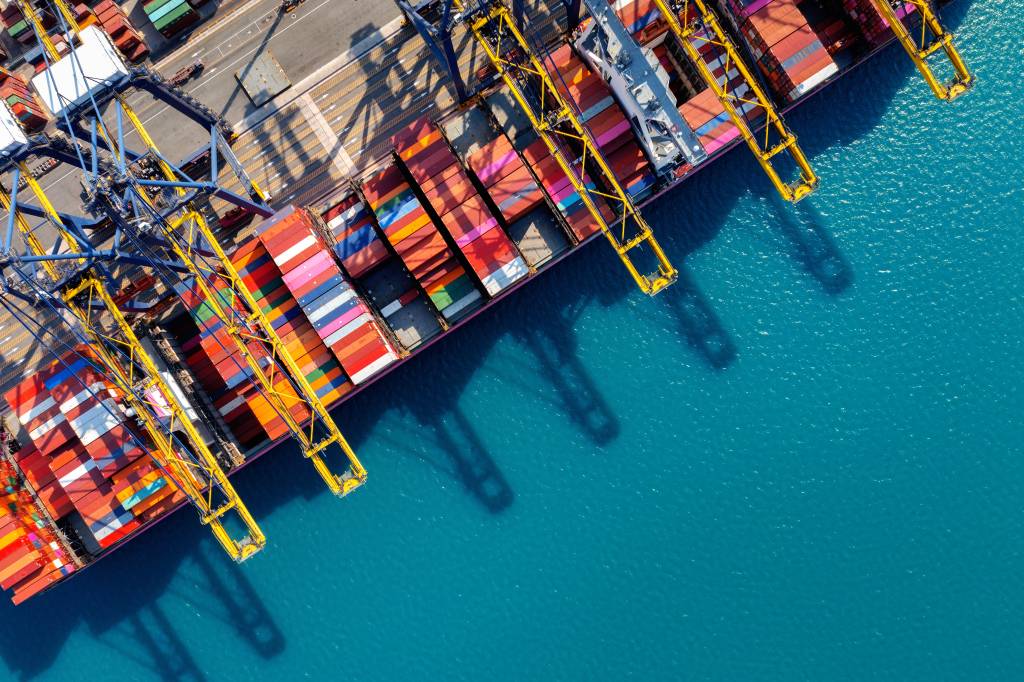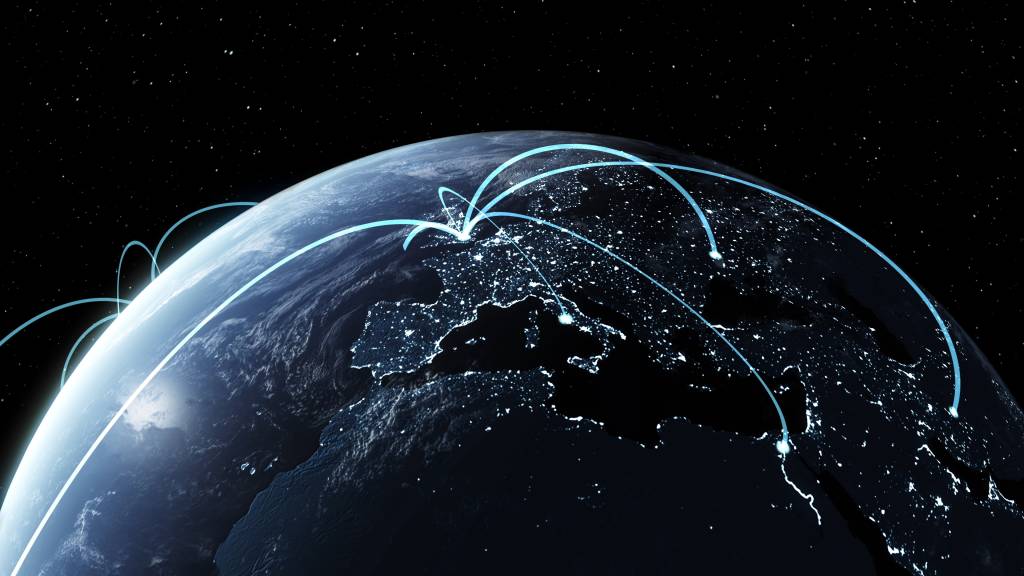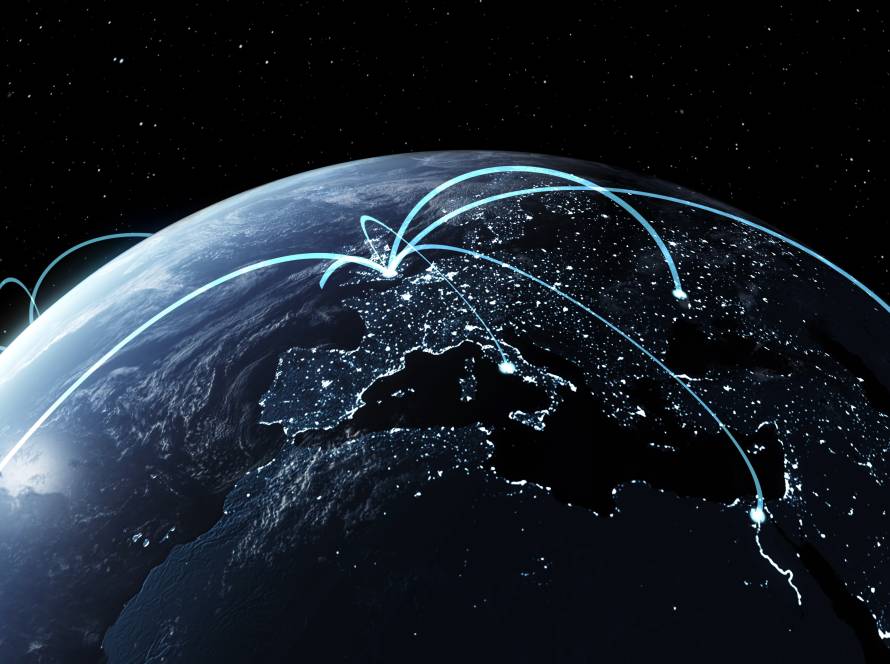We find ourselves at a pivotal moment in time—one where economic, geopolitical, and environmental pressures are testing the fundamental structure of global trade. For decades, global trade has been the backbone of economic growth, driving international collaboration, innovation, and wealth creation. The ability to access diverse markets and optimise production through global supply chains has driven prosperity across industries and nations.
However, the world is rapidly changing. Geopolitical tensions, from trade disputes and economic sanctions to shifting alliances and regional conflicts, are creating uncertainty and volatility in global markets. Nations are reassessing trade dependencies, and businesses are under increasing pressure to diversify supply chains to mitigate risks.

Balancing Growth, Sustainability, and Resilience
The World Trade Organization, (WTO) economists now anticipate that the volume of world merchandise trade will increase by 3.0% in 2025, while global GDP growth at market exchange rates is expected to remain at 2.7%. Declining inflationary pressure has meant that central banks in advanced economies have begun cutting interest rates, supporting a gradual recovery of global trade. However, significant downside risks remain, including regional conflicts, geopolitical tensions, and policy uncertainty, which could disrupt this fragile progress.
Aik Hoe Lim, Director, Trade and Environment at WTO, explains, “Global sustainable trade, at the end of the day, is a goal—a goal for the WTO, for most businesses, and most societies. But it’s also what can be done to ensure that society understands that global trade is an extremely important part to help move the global trading initiative forward.”
At the same time, the climate crisis is forcing a reckoning in trade practices. Traditional supply chains—those which are dependent on fossil fuels, mass production, and resource extraction, are no longer sustainable, while extreme weather events are challenging the stability of supply networks. “If you look at the point of climate change, it has arrived much sooner and at larger scale than anyone anticipated,” says Dan Wensing, CEO of IDH. “And it is disrupting value chains. It is disrupting access to the resources that companies need, and that hits the bottom line of the company.”
According to the UN Trade and Development (UNCTAD), some of the world’s most CO₂-intensive traded sectors are heavily regulated for climate objectives. For example, 83% of the global motor vehicle trade, which is valued at $2.3 trillion, is regulated, while other major sectors under climate-related regulations include electricity and heat generation devices (48%), motor fuel (37%), and household appliances and electronics (44%).
Meanwhile, consumer expectations are shifting. Transparency, ethical sourcing, and sustainability are no longer optional—they are demanded. Studies indicate that 66% of consumers are willing to pay more for sustainable goods, and companies failing to adapt risk losing both market share and investor confidence (NielsenIQ). “Consumer awareness is absolutely vital for the sustainability of trade,” explains Merle. A Hinrich, Founder and Chairman of Hinrich Foundation. “Technology can enhance transparency, helping consumers understand product origins, raw materials and the companies behind them, and this empowers informed decisions aligned with personal values, personal consumer values driving basically demand for responsible trade practices.”
Against this backdrop, a new approach to global trade is essential—one that does not view sustainability as a trade-off, but as an economic advantage. A balance must be struck between economic opportunity, environmental responsibility, and fair, transparent trade practices, with the organisations that embrace this shift not only future-proofing their businesses but also playing a critical role in shaping the future of the trading system.
“Legal frameworks are still insisting that everyone has to sign bits of paper,” explains Chirs Southworth, Secretary General at ICC. “It’s very slow. It’s very complex. It’s very inefficient. And the bigger opportunity now. It’s completely unfit for purpose, for the future where we need accurate data. We need more transparency.” In today’s world, it is clear that blockchain and digital ledger technologies could transform trade documentation, automate compliance, reduce fraud, and increase the speed of transactions across borders.
What is Global Trade and Why is it Important?

Global trade refers to the exchange of goods and services across international borders, allowing countries to specialise in production and benefit from shared resources.
Beyond economic growth, global trade enhances innovation, drives job creation, and creates cultural exchange. By enabling access to goods, services, and technologies that may not be available domestically, it enhances living standards and strengthens economic ties between nations. However, these benefits do not come without challenges, particularly as geopolitical and environmental concerns disrupt supply chains.
Understanding Global Supply Chains and Private Sectors Role

At the heart of global trade is the global supply chain—the bringing together of sourcing, production, and distribution that allows goods to reach consumers worldwide. This system is increasingly complex, as products often require components from multiple countries. For example, a smartphone may have processors designed in the United States, batteries manufactured in South Korea, and assembly in China. However, disruptions such as trade disputes, resource scarcity, and political instability pose significant risks.
The private sector plays a critical role in addressing global trade challenges. While governments provide policy frameworks, it is businesses that drive innovation, implement sustainable practices, and ensure resilience in supply chains. “The role that the private sector plays really is tremendous,” acknowledges Nathalie Bernasconi-Osterwalder, Vice-President, Global Strategies and Managing Director, Europe at IISD. “It has been playing in the global negotiations on plastic pollution, and has stepped up in favour of an ambitious treaty that looks at the entire value chain of plastics has been a great success, and they’ve been very active in proposing solutions and how things can be done.”
The Global Sustainable Trade Initiative (GSTI) is built on 16 key pillars, addressing both the challenges and opportunities shaping global trade. The aim of these pillars is to create a fair, transparent, and responsible trading environment, ensuring long-term sustainability and resilience. By promoting ethical practices, innovation, and economic inclusivity, GSTI seeks to create a trading system that benefits both businesses and communities, while ultimately impacting the planet and adapting to evolving global demands.
At the core of many of these solutions is technology, which has the potential to drive transparency, efficiency, and accountability in trade. From AI-powered logistics that optimise transportation routes to digital twins that simulate supply chain resilience, cutting-edge innovations are shaping the future of global trade.
GSTI is committed to actively addressing critical global trade challenges, with some of its core principles including:
- Economic Sustainability: Sustainable trade is not just about short-term gains but long-term business resilience. By embedding responsible trade practices, companies can reduce risks while ensuring profitability.
- Intellectual Property Protection: As digital trade expands, intellectual property (IP) protection is increasingly crucial. Strengthening international cooperation on IP laws can reduce trade barriers and promote fair licensing.
- Circular Economy Practices: A shift toward a circular economy is essential to sustainable trade. By designing products for reuse, repair, and recycling, businesses can reduce waste and enhance resource efficiency.
- Compliance and Regulation: Navigating international regulations is a challenge for businesses, with differing laws increasing costs and uncertainty. Simplifying compliance through harmonised trade policies and leveraging digital tools like blockchain and AI can enhance transparency and reduce fraud.
- Responsible Resource Management: Resource scarcity, particularly in critical minerals and energy, threatens global trade. Sustainable sourcing, ethical mining, and investments in renewable energy will be key to long-term stability.
- Environment-Conscious Innovation: The trade sector must adapt to environmental imperatives by reducing emissions and improving energy efficiency. Technologies such as hydrogen transport, carbon capture, and AI-driven logistics are key to balancing trade growth with climate commitments.
What is the Goal?
GSTI is dedicated to transforming the global trade system to ensure that 100% of supply chains are fair, transparent, and inclusive, benefiting all economies. Achieving this requires a shift from traditional trade models to those that prioritise economic sustainability, responsible resource management, regulatory compliance, and equitable trade practices.
The goal is not simply growth, but growth through sustainable cooperation—where businesses, governments, and industries work together to eliminate exploitation, close opportunity gaps, and establish trade networks that are both resilient and ethical. Every link in the supply chain must be held to high standards of transparency, labour rights, and environmental responsibility, ensuring that the benefits of trade are distributed equitably rather than concentrated in the hands of a few dominant players.
However, recognising these opportunities is not enough—real progress requires bold action. The future of trade will be shaped by businesses and organisations that integrate sustainability into their core strategies, advocate for regulatory fairness, and invest in solutions that improve supply chain accountability. Those who lead with measurable impact will not only strengthen their own economic resilience but also contribute to a global system that is more inclusive.
“We have to work together,” says Ciyong Zou, Deputy to the Director General at UNIDO. “I see a positive outcome from this, the discussions which will truly help us build momentum for this transformative development within the community.”
Conclusion
Global trade is a powerful force for prosperity, but without fairness, transparency, and resilience, its benefits will be short-lived. The private sector has a responsibility—and an opportunity—to drive meaningful change by embedding responsibility, innovation, and equity into trade practices.
By committing to sustainable trade principles and ensuring that every supply chain benefits all economies, businesses can mitigate risk, unlock new opportunities, and create a fairer, more stable global economy, one that works for everyone.


